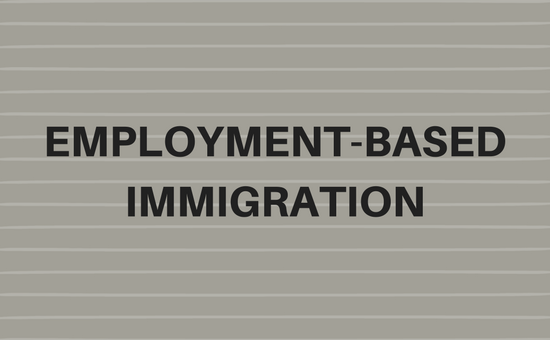A B-1 in lieu of H-1B (BILOH) visa allows a qualifying foreign worker to enter the US for a short stay to perform activities that would typically require the worker to have an H-1B visa. Workers and employers may desire the worker to have a BILOH visa for many reasons, including cost, speed, and efficiency. However, despite these desires, the foreign worker must meet certain requirements to get the BILOH visa.
Getting a BILOH is not as simple or straightforward as getting the typical B-1 visa, which does not permit activity characteristic of a “specialty occupation.” Nonetheless, in certain circumstances, a consular officer will issue the BILOH.
A consular officer may issue a BILOH visa when
· The employee, like applicants for nearly all kinds of temporary visas, must overcome the presumption of immigrant intent and to show that he or she will leave the US at the appropriate time. The employee must maintain a foreign residence that he or she has no intention of abandoning. H-1B employees, on the other hand, do not need to maintain such residence; they may have an intention to permanently reside in the US.
• The employee must show enough financial resources to accomplish the purpose of the visit and departure from the US.
• The employee must be employed and paid by an overseas business. (The employee must remain on overseas payroll throughout his or her US stay. The employee may not receive payment from a US source, other than an expense allowance or expense reimbursement.)
• The employee must show that he or she will engage in H-1B caliber activity, that he or she will engage in activity of a specialty occupation. The employer must relatedly show that he or she possesses a bachelor’s degree or equivalent that is related to the activities to be performed.
• The planned stay must be temporary, normally less than six months long.
It is worth noting a few other things about BILOH visa holders: The employee must remain under the control and supervision of his overseas employer. The primary benefit of the stay should accrue to the “foreign employer” or the work must further international commerce. Problems may arise if the foreign national is entering to perform activities that are clearly for the benefit of a US affiliate or client.
It clear why workers and employers might be drawn to the BILOH visa. Perhaps the most significant advantage of the BILOH is that such an arrangement allows the foreign worker and the employer to skirt past the annual H-1B visa cap. The 65,000 H-1B cap is typically reached in just a matter of days, preventing many employers from petitioning for specialty workers. It is an option that is certainly worth considering for many employers.
